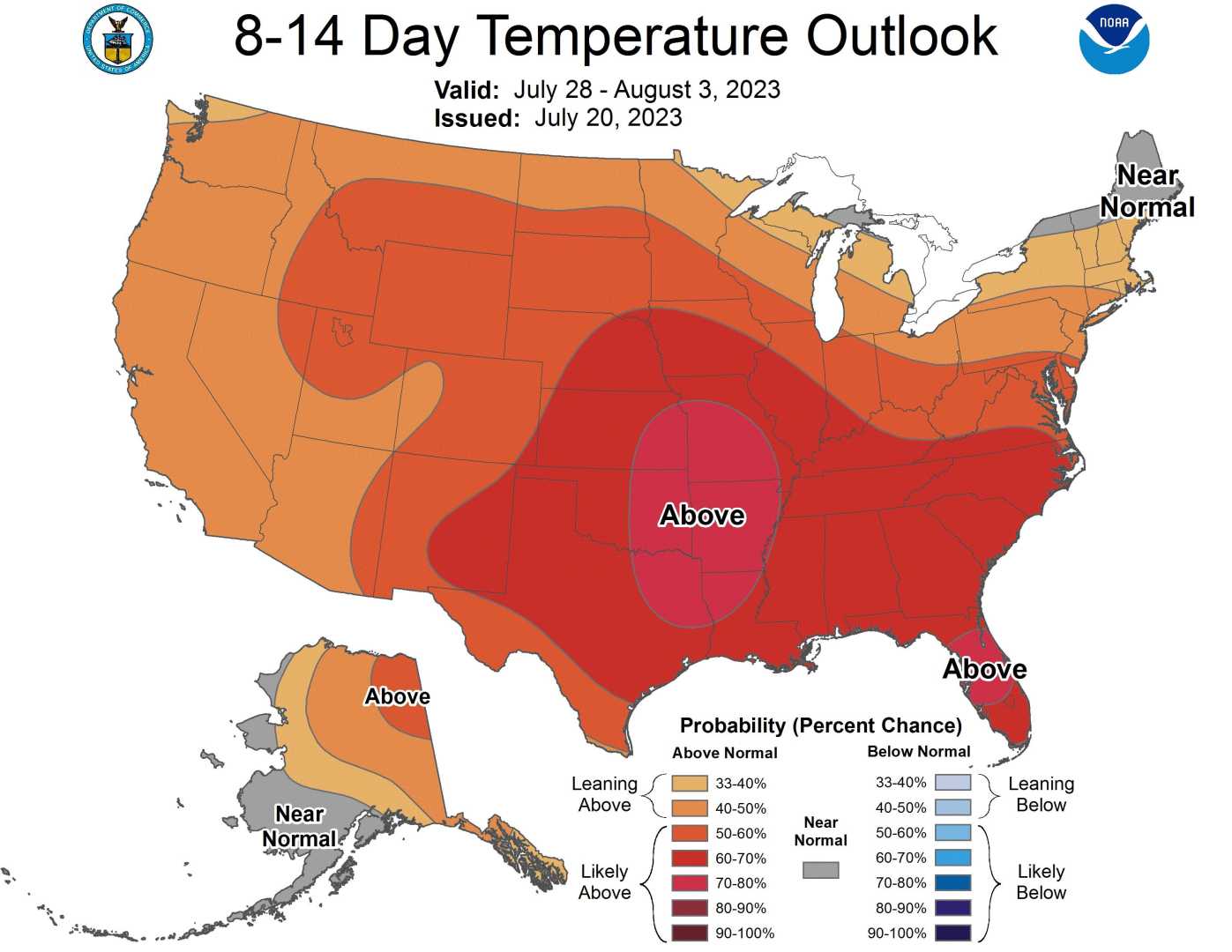News
Extreme Heatwave Hits Eastern US, Dangerous Temperatures Forecast

Washington, D.C. — A significant heatwave is sweeping across the eastern United States, affecting over 185 million people with dangerously high temperatures. On Monday, temperatures are predicted to soar, especially in the Southeast, where heat indices could reach 120°F (49°C).
The heatwave extends from the Carolinas through Florida, with heat index values expected to be between 105°F and 113°F (40.5°C to 45°C). Some areas, particularly in Florida, face the most severe conditions, with the heat index potentially hitting 120°F.
Midwestern states are also feeling the heat after a weekend of oppressive temperatures that felt like 97°F to 111°F (36°C to 44°C). Cities including St. Louis, Memphis, New Orleans, and Raleigh are under extreme heat warnings. In these regions, actual temperatures are expected to reach the mid-90s and low 100s, with heat indices possibly climbing to 110°F to 115°F.
This heatwave is classified as level 4 out of 4 on the heat risk scale, impacting much of Florida and extending north into the Carolinas and beyond. A broader level 3 zone stretches from the eastern plains through the midwest into the mid-Atlantic.
During the weekend, Tampa experienced unprecedented heat, reaching 100°F (37.8°C) and breaking local records. The extreme weather is anticipated to persist through midweek, affecting major cities including Charlotte, Tampa, and Jackson.
Overnight temperatures will remain uncomfortable, hovering only in the 70s. However, a cold front is expected to move in later this week, providing some relief as conditions begin to cool by the weekend.
The combination of high temperatures and humidity in the Mississippi River valley and central plains poses particularly hazardous conditions, raising concerns for vulnerable populations such as the elderly and those living in poorly ventilated spaces. Approximately 1,300 fatalities occur annually in the U.S. due to extreme heat.
As climate change continues to drive up temperatures, excessive heat has become the leading cause of weather-related deaths in the country. Many federal agencies, including the National Oceanic and Atmospheric Administration (NOAA), currently operate at reduced capacity due to staffing cuts.
Experts stress the importance of addressing the health risks associated with extreme heat, especially as the frequency of heatwaves increases. The situation remains critical as communities prepare for ongoing high temperatures this summer.












